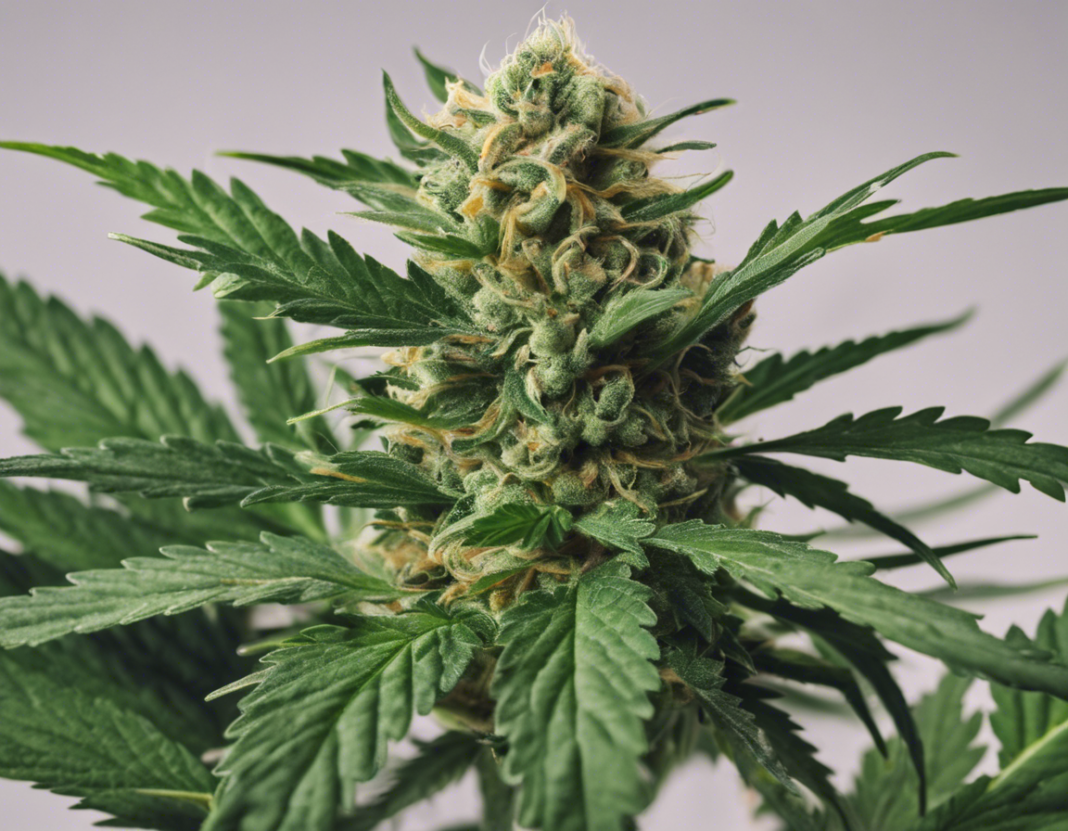Introduction
The debate surrounding cannabis and its effects on mental health is a multifaceted one, with various studies yielding conflicting results. As more states and countries move towards legalization of cannabis for medicinal and recreational use, it is crucial to understand the potential implications this may have on mental well-being. This article aims to delve into the relationship between cannabis consumption and mental health, exploring key research findings, potential benefits, risks, and best practices for individuals considering cannabis use in relation to their mental health.
Understanding Cannabis
Cannabis, also known as marijuana, weed, or pot, is a plant that contains compounds known as cannabinoids. The two primary cannabinoids of interest are tetrahydrocannabinol (THC) and cannabidiol (CBD), each exerting different effects on the body and mind. THC is the psychoactive component responsible for the "high" associated with cannabis use, while CBD is non-intoxicating and has been studied for its potential therapeutic properties.
Cannabis Use and Mental Health
Anxiety and Depression
One of the most common reasons individuals cite for using cannabis is its potential to alleviate symptoms of anxiety and depression. While some users report subjective improvements in mood and relaxation, the relationship between cannabis use and mental health is complex. Research suggests that THC may exacerbate anxiety and paranoia in some individuals, particularly at high doses or in susceptible populations. On the other hand, CBD has shown promise in preclinical studies for its anxiolytic (anxiety-reducing) effects.
Psychosis and Schizophrenia
Another area of concern is the potential link between cannabis use and the development of psychosis or schizophrenia. While the majority of cannabis users do not experience these severe mental health conditions, certain individuals with a genetic predisposition or existing vulnerability may be at increased risk. THC has been implicated in triggering acute psychotic symptoms, and regular use during adolescence has been associated with a higher likelihood of developing schizophrenia later in life.
Bipolar Disorder
For individuals with bipolar disorder, a condition characterized by mood swings between mania and depression, the effects of cannabis can be unpredictable. Some users report that cannabis helps regulate their mood and reduce stress, while others find that it exacerbates symptoms or interferes with medication efficacy. The interplay between cannabis and bipolar disorder is not well understood and may vary from person to person.
Sleep and Insomnia
Cannabis is also commonly used as a sleep aid to combat insomnia and improve sleep quality. While THC may have sedating effects that help some individuals fall asleep faster, it can disrupt the sleep cycle and lead to grogginess upon waking. CBD, on the other hand, has shown potential for promoting relaxation and aiding in stress management, which may indirectly benefit sleep patterns.
Addiction and Withdrawal
One of the primary concerns regarding cannabis use is the potential for addiction and withdrawal symptoms. While cannabis addiction is less common compared to substances like alcohol or opioids, some individuals may develop a dependence on THC and experience withdrawal symptoms such as irritability, insomnia, and anxiety upon cessation of use. It is important to monitor consumption patterns and seek help if addiction becomes a concern.
CBD as a Potential Treatment Option
As CBD gains popularity for its purported therapeutic effects, researchers are exploring its potential as a treatment option for various mental health conditions. Preliminary studies suggest that CBD may have antidepressant and anxiolytic properties, offering a more balanced approach to cannabis consumption for individuals concerned about their mental well-being. However, more research is needed to fully understand the long-term implications of CBD use on mental health.
Best Practices for Cannabis Use and Mental Health
-
Consult with a Healthcare Provider: Before incorporating cannabis into your mental health regimen, speak with a healthcare provider who is knowledgeable about cannabis and mental health. They can provide personalized recommendations based on your individual needs and circumstances.
-
Start Low and Go Slow: If you decide to try cannabis, start with a low dose and monitor your response carefully. Gradually adjust the dosage as needed to achieve the desired effects while minimizing potential side effects.
-
Choose the Right Strain: Different cannabis strains contain varying levels of THC and CBD, each with unique effects on the mind and body. Experiment with different strains to find the one that works best for you in terms of mental well-being.
-
Mindfulness and Moderation: Practice mindfulness while consuming cannabis and pay attention to how it impacts your mental state. Avoid excess use and prioritize moderation to reduce the risk of negative consequences.
-
Consider Alternative Therapies: In addition to cannabis, explore other therapeutic approaches such as therapy, meditation, exercise, and nutrition to support your mental health. A holistic approach can provide comprehensive benefits beyond what cannabis alone can offer.
Frequently Asked Questions (FAQs)
- Can cannabis worsen anxiety and depression symptoms?
-
While some individuals report relief from anxiety and depression with cannabis use, others may experience worsening symptoms, especially with THC-dominant strains. It is essential to monitor your reaction and consult with a healthcare provider.
-
Is CBD safe for mental health conditions?
-
CBD shows promise for treating anxiety, depression, and other mental health concerns, with fewer side effects than THC. However, individual responses may vary, and it is advisable to seek professional guidance.
-
Can cannabis trigger psychosis or schizophrenia?
-
Regular and heavy cannabis use, particularly high-THC varieties, may exacerbate or trigger psychotic symptoms in susceptible individuals. There is a correlation between cannabis consumption during adolescence and increased schizophrenia risk.
-
How does cannabis affect sleep patterns?
-
THC may help individuals fall asleep faster but can disrupt the sleep cycle, leading to poor-quality sleep. CBD may promote relaxation and stress relief, indirectly benefiting sleep patterns.
-
Is cannabis addictive?
- While cannabis addiction is less common than other substances, some individuals may develop a dependence on THC and experience withdrawal symptoms upon cessation of use. Monitoring consumption patterns is crucial.
Conclusion
The relationship between cannabis and mental health is a nuanced one, with both benefits and risks to consider. Individual responses to cannabis consumption vary widely, highlighting the need for personalized approaches and professional guidance. By staying informed, practicing mindfulness, and exploring alternative therapies, individuals can make informed decisions regarding cannabis use in relation to their mental well-being.

